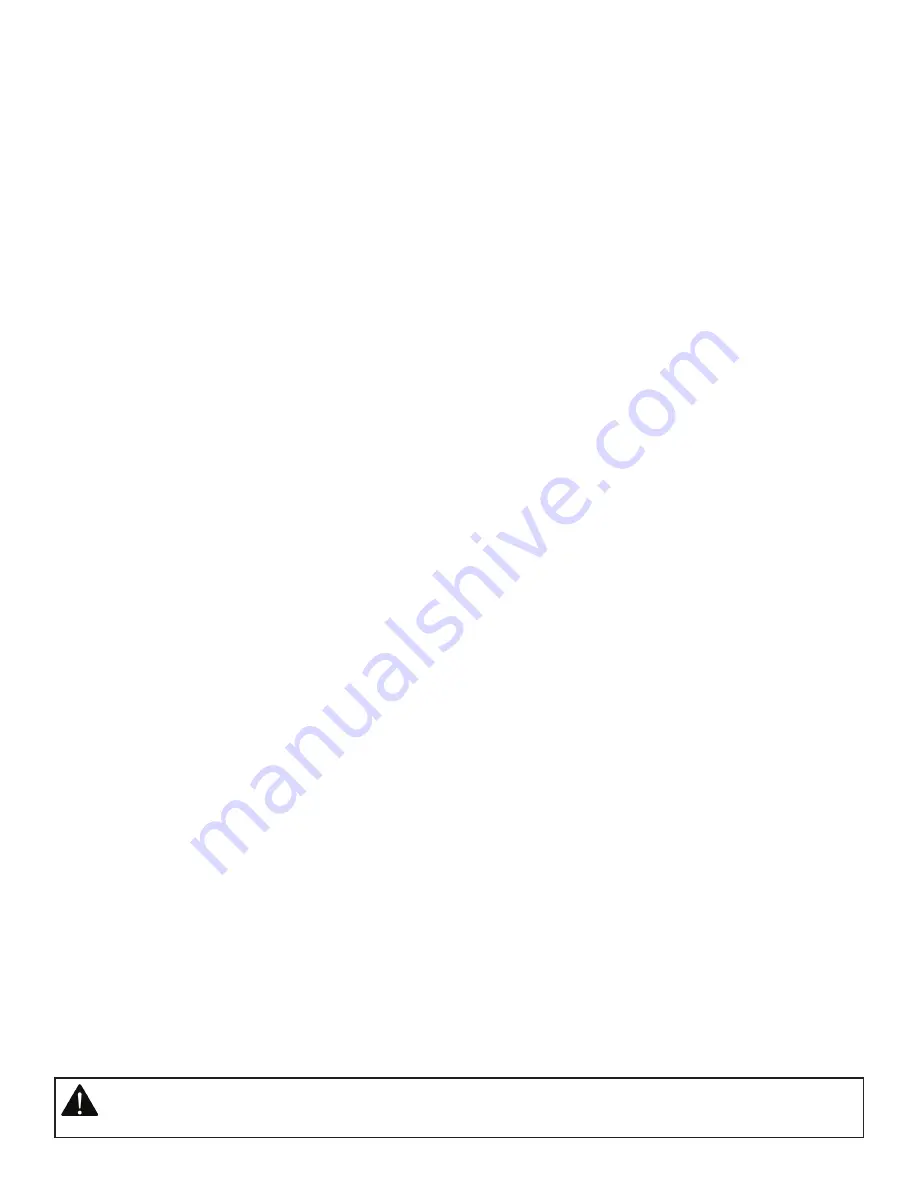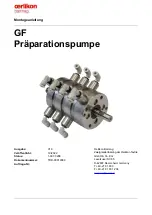
Hard Water Conditions
Use a water conditioner. Hard water can cause scale build-up and eventually reduce the life of the pump and other
system components.
Protected by one or more of the following Patents: 4580335, 4615662, 4822256, 4834628, 5094593, 5143049,
5749715, 6149407, 6227235
System Maintenance
• Do not attempt to lubricate the pump. The pump is self-lubricating.
• Prevent the pump from running dry.
• Flush the system of any debris and re-purge all air from the system in the event of any water supply interruptions in
plumbing line.
• Prevent heavy scale build-up by keeping the hot water temperature 140ºF (60ºC) or less. (only in US)
• Don’t over salt your water conditioner.
U.L. Caution
This pump has been tested using water only.
Its suitability for use with liquids other than water is the end user’s responsibility.
Australia
This pump must be installed in accordance with AS3500
Trouble Shooting
Noise in the System
The pump should be virtually noiseless during operation. The rotor may make a brief but hardly perceptible fluttering
noise immediately after the pump is turned off. During normal operation, an occasional air bubble may pass through
the pump housing causing a momentary gurgling noise. However, if noise at the pump persists for any prolonged
period, correct the problem.
• The check valve/non-return valve is mistakenly installed on the inlet side of pump or in the wrong direction.
• The inlet side shut-off valve is closed or clogged.
• There is air trapped in the pump housing (turn the pump on and off several times to see if the air pocket can be
“bumped” out of the pump and if not, then open the hose bib for manual venting).
• There is debris blocking the rotor.
• The rotor bearing has worn due to dry running causing the rotor to wobble during operation.
• If the return line connects to the cold water supply at the top of water heater, the warm water may be creating back
pressure in the cold supply line. If so, add a check valve/non-return valve on the cold supply line above the return line
tee connector.
Pump Operating Intermittently or Not at All
• No power to the pump.
• There is debris or foreign matter in the pump.
• The thermostat is not functioning properly. If wanted, the thermostat may be easily disconnected. Contact the Laing
factory or local representative for details.
Water Taking Too Long to Get to Faucet/Tap
• The hot water supply from the water heater is exhausted.
• The faucet/tap involved may be on a branch line off the main hot water supply line in which case there may be a
slightly longer wait for hot water to arrive than at faucet/tap directly off the main supply line.
• The check valve/non-return valve is installed backwards.
• The pump is not operating.
• The timer is not operating properly.
Signs of Dry Run
Dry run results from inadequate water supply to the pump, which prevents lubrication of the bearing ball. It may be
caused by operating the pump without water in the plumbing lines, which may occur with frozen pipes, or by failing to
turn the pump off when the system is drained for servicing. It can also occur as the result of large air bubbles
collecting in the pump housing and preventing the flow of water over the bearing ball. If the problem is air in the
system, check that the air vent is functioning, that the system is properly purged of air and that the pump and various
system components are installed.
Safety Requirements
Mechanical Safety
WARNING: - Excessive System Pressure Hazard -
The maximum working pressure of the pump is listed on
the nameplate -
Do Not Exceed This Pressure.
Failure to follow these instructions could result in serious
personal injury, death and/or property damage.
























